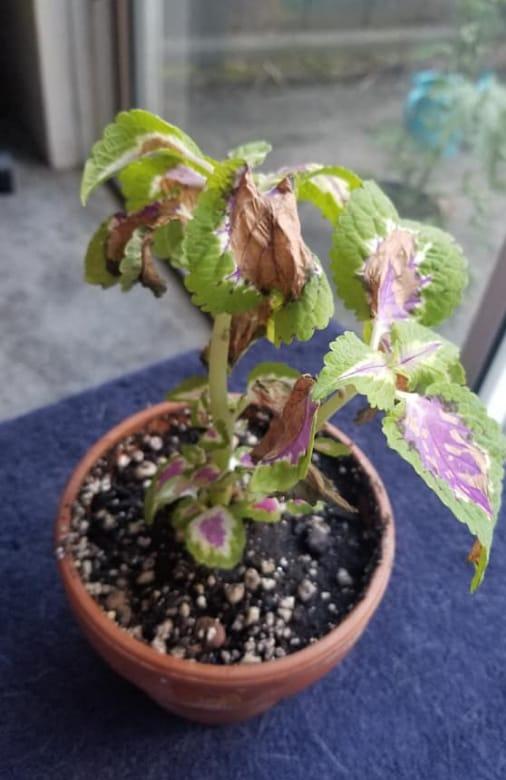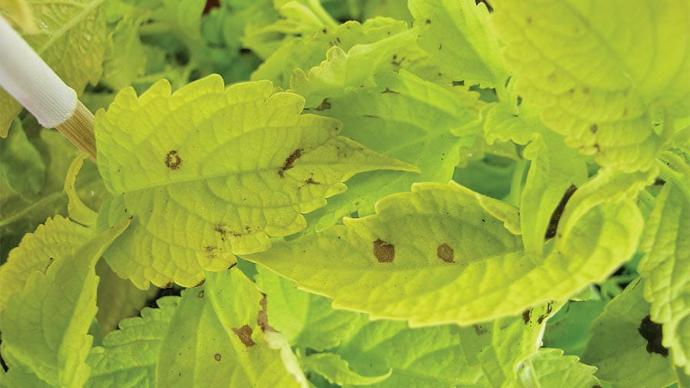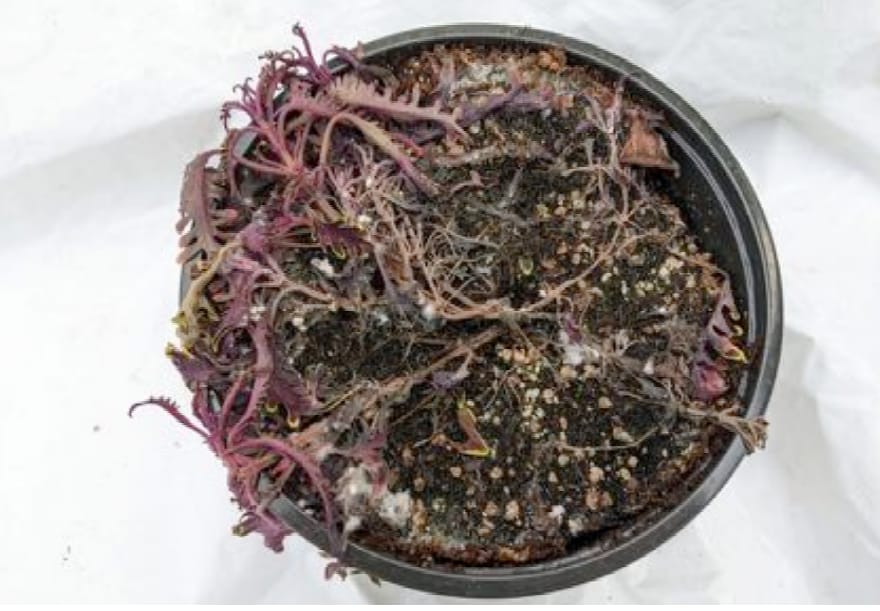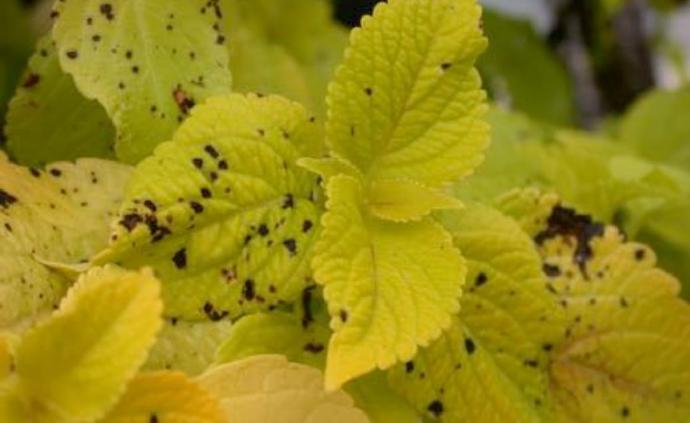Coleus Plant
Coleus, herbaceous perennials with fast growth, prefer well-drained soil and partial shade to full sun. With high moisture needs, they are often used for decorative purposes in gardens and landscapes.
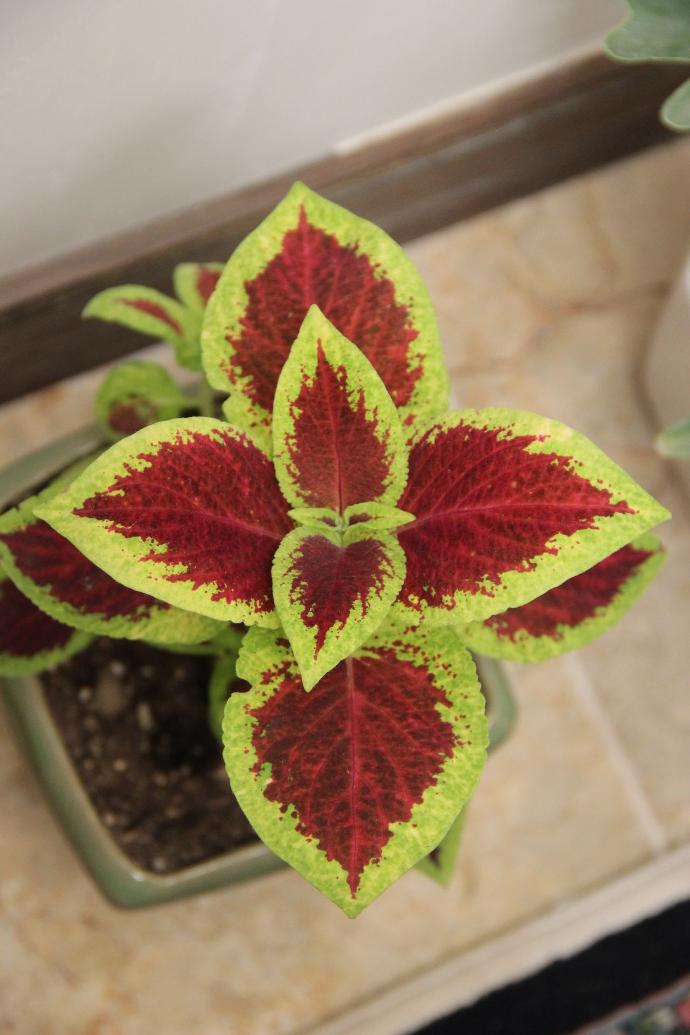
Habit
Herbaceous Perennial
Height
30-100 cm
Growth
Fast
Soil
Well-drained organic
Shade
Partial Shade to Full Sun
Moisture
High
Edible
No
Medicinal
No
Origin
Southeast Asia
Climatic Condition
Tropical, Humid
Temperature (°)
18-30°C
Humidity (%)
60-90%
Potting media
Peat, compost
Fertilizers
Organic fertilizers
Watering
Regular misting
Plant Weight
100-500 g
Flowering Time
Year-round
Soil Ph level
5.5 - 7.0
Water Ph level
5.5 - 7.0
Soil EC
1-2 dS/m
Yield Per Plant
Ornamental
NPK ratio
10:10:10
life Span
Perennial
Health Benefits
Air purification, skin benefits
Suggested Grow Media or Potting Mix ?
40% peat moss, 30% perlite, 30% compost
Suggested Fertigation/Fertilizers
Fertilize every 2 weeks with a balanced, water-soluble fertilizer.
Common Diseases and Remedies
Fungal Leaf Spot , Wilt
Circular spots on leaves , stem shows discoloration
Neem oil, baking soda.
HEALTH BENEFITS
- Weight Loss: Forskolin, a compound in coleus, is believed to aid in fat loss.
- Heart Health: May help lower blood pressure and improve circulation.
- Bronchodilator: Used in traditional medicine to treat asthma and respiratory conditions.
What Is An coleus Tree?
Coleus, scientifically known as Plectranthus scutellarioides, is a vibrant ornamental plant prized for its stunning, colorful foliage. Native to Southeast Asia, coleus is popular as a garden and ornamental plant due to its diverse leaf shapes, sizes, and bright colors. The leaves display a variety of attractive colors, including green, pink, red, purple, and yellow, and often display intricate patterns. It is also visually interesting as a landscape or interior decoration.
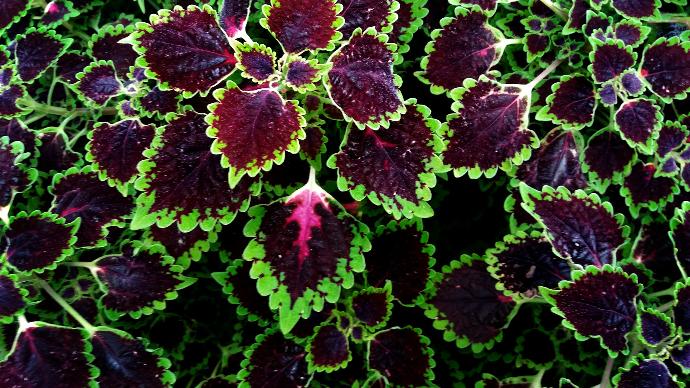
What Are The Different Types Of Coleus Plants?
1. Coleus 'Wizard Series'
This series is known for its compact growth and wide range of bright colors. Suitable for both garden flower beds and containers.
2. Coleus 'Kong Series
The 'Kong' series is characterized by its large leaves and bright colors. It often features a striking combination of green, red and burgundy.
3. Coleus 'Rainbow Mix
As the name suggests, this variety offers a mixture of colors that creates a kaleidoscopic effect. Popular for adding variety to gardens and landscapes.
4. Coleus 'Chocolate Mint
This variety has chocolate brown leaves with mint green edges, providing a rich and attractive contrast.
5. Coleus 'Velvet Red'
With deep red velvety leaves, this variety adds a touch of elegance and drama to garden spaces.
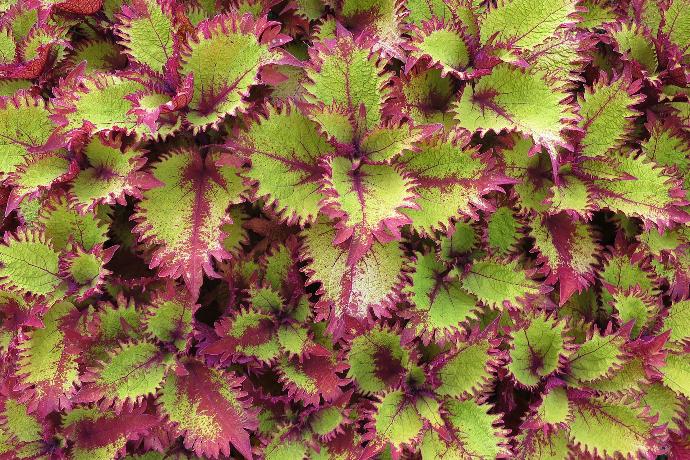
How to care for Coleus Plants ?
1. Location
Coleus is versatile and can be grown indoors or outdoors. When grown indoors, it grows well even in bright indirect light, making it a popular ornamental plant. Prefers partial to full shade outdoors, and adds bright color to garden beds and containers in warmer climates. Whether you're enhancing your indoor space or outdoor landscape, coleus adapts well to a variety of environments and adds visual interest with their spectacular foliage.
2. sunshine
Coleus Outdoors: Plant in partial to full shade, especially in areas with hot afternoon sun. Indoor Coleus: Provides bright indirect light. Coleus can adapt to lower lighting conditions, but may lose some of their vibrant colors.
3. Soil
Use well-drained potting soil or garden soil rich in organic matter. Good drainage is important to prevent roots from flooding.
4.Hydration
Keep the soil evenly moist but not waterlogged. Water when the soil surface feels a little dry. Outdoor plants may require more frequent watering during hot, dry weather.
5. Nutrition
A balanced all-purpose fertilizer with an NPK ratio of 10-10-10 or 14-14-14 provides the nutrients needed for healthy coleus growth. Always follow the manufacturer's recommendations for application amount and frequency.
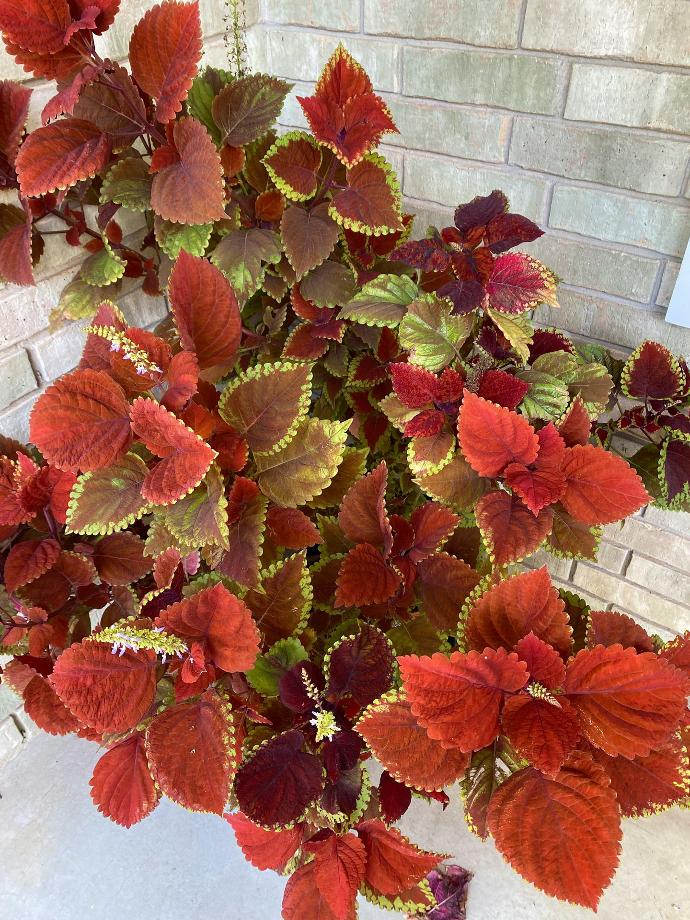
6.Issues
Coleus plants can encounter several common problems that can affect their health and appearance. Overwatering, which causes root rot, is a common problem. Therefore, it is important to keep the soil well-drained. Insufficient light can cause them to grow leggy, and too much sun exposure can cause leaf scorch. Pests such as aphids and spider mites may attack coleus and require immediate treatment with insecticidal soap. Additionally, cold temperatures can slow growth and cause leaf drop. Proper management such as proper watering, proper lighting conditions, and pest control can help address these problems and promote the growth of coleus plants.
What are the Benefits of Coleus Plants ?
Coleus, scientifically known as Plectranthus scutellarioides, has several benefits beyond its beauty. Known for its air-purifying properties, this vibrant and versatile plant filters out pollutants such as formaldehyde and benzene, improving indoor air quality. It's low-maintenance, making it popular for both indoor and outdoor gardens, providing a pop of color without requiring extensive maintenance.
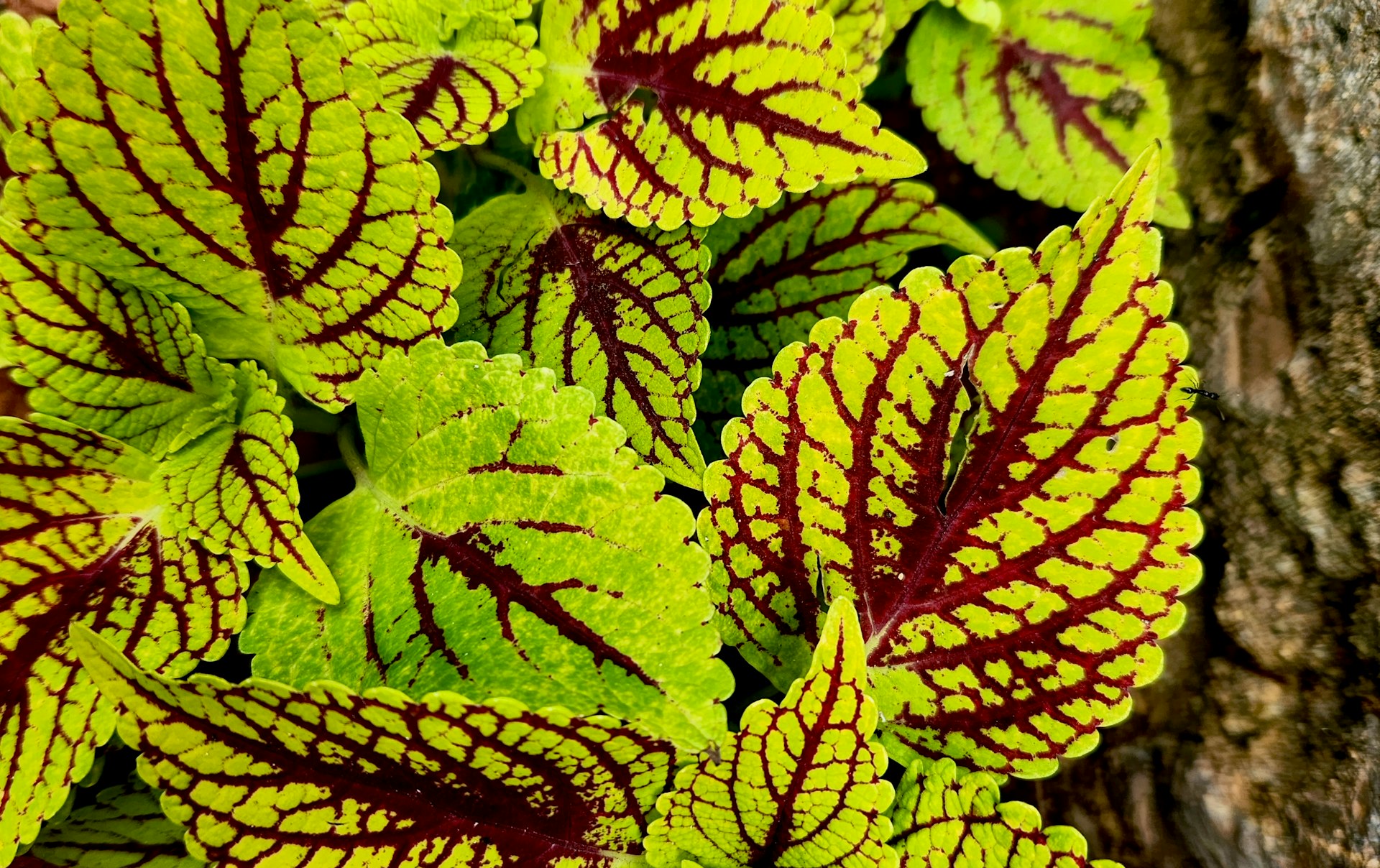
FAQs About Growing Coleus
1. Can Coleus plants tolerate full sun?
While some Coleus varieties can tolerate full sun, many prefer partial to full shade. Exposure to intense sunlight can lead to leaf scorching, so it's essential to consider the specific needs of the Coleus variety.
2. How often should I water my Coleus?
Coleus plants prefer consistently moist but well-draining soil. Water when the top inch of the soil feels slightly dry. Overwatering can lead to root rot, so it's crucial to find the right balance.
3. Can I grow Coleus indoors?
Yes, Coleus is well-suited for indoor cultivation. Provide bright, indirect light, and choose a well-draining potting mix. Indoor Coleus can add vibrant colors to your indoor spaces.
4. How do I propagate Coleus?
Coleus can be easily propagated from stem cuttings. Take a 4-6 inch cutting, remove lower leaves, and place it in water or moist soil until roots develop.
5. Do Coleus plants flower?
Yes, Coleus produces small, inconspicuous flowers. However, many gardeners prefer to pinch off the flowers to encourage the plant to focus on foliage development.
